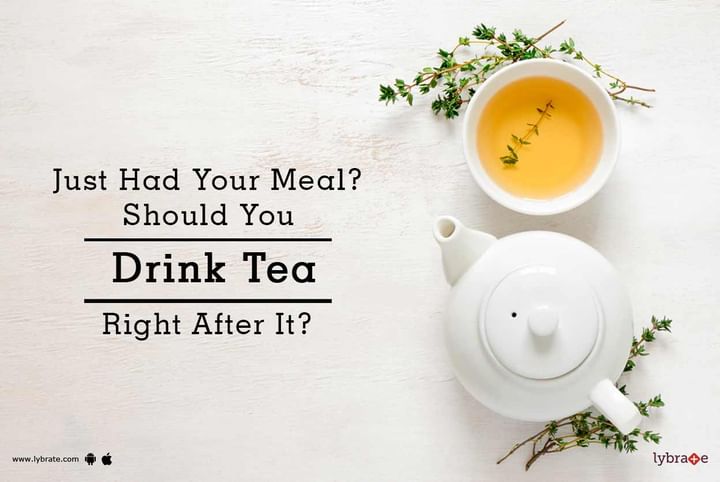Just Had Your Meal? Should You Drink Tea Right After It?
For a tea lover, nothing in the world can be more gratifying than a cup of tea. Happiness or sadness, stress or celebration, the answer to everything is a cup of heavenly delight.
In addition to the hard core tea addicts, many people, in general, have the habit of drinking tea after meals. While many see this as a harmless addiction, some experts consider the habit anything but healthy.
What is the truth then? Is it harmless to drink tea after meals or is the truth different from what apprehended? In this article, we try to find an answer to this baffling question.
Some reports suggest that drinking tea, particularly the green tea or any other herbal tea, after meals may be a good practice. The green tea is known for its high antioxidant and polyphenol content.
- When consumed after a meal, the green or herbal tea acts as a catalyst, accelerating the production as well as the stimulation of many digestive enzymes including gastric juice, saliva, and bile to aid in the digestion process.
- The catechins (polyphenolic compounds), an active compound present in green tea enhances the pepsin activity to a great extent. An increased pepsin activity indicates a better breakdown of the dietary proteins.
- The antioxidants in the green tea are known to deal with many complications associated with digestion with elan. In fact, green tea is considered an effective digestive stimulant. It is known to provide relief from intestinal gas as well as conditions of Irregular Bowel Syndrome (namely Ulcerative Colitis and Crohn’s disease).
- Green tea or herbal tea also helps in better absorption of the dietary nutrients.
In order to avoid all merits and demerits, lemon tea is the best and that's also before food it acts as an appetizer. Lemon tea should be prepared by adding ajwain, shunthi (dry ginger) salt and sugar, after boiling all these ingredients, filter it add some drops of lemon in it and drink it. It can be taken after meal also. It will help in easy digestion and prevent from gaseous distention.
While these points reflect the benefits of having tea (mainly green or herbal tea) after meals, there is the other side to it. Not all people enjoy having green tea. Thus, when we discuss the merits or the demerits, we should consider tea in general and not just herbal or green tea.
- The Tannin present in tea comes with many side effects.
- Tannin interferes with absorption of many minerals including iron, zinc, and calcium (slows down the absorption). As a result, there may be a deficiency of these minerals, triggering a myriad of health complications.
- In some people, tannin may also trigger constipation.
- Thus, people already suffering from the deficiency of these minerals should refrain from drinking tea between meals.
- Another ingredient present in tea is the caffeine.
- It is a well-known fact that increased consumption of caffeine can result in insomnia.
- For people with a stomach ulcer, caffeine may be harmful as it is known to aggravate the condition further.
- It can also trigger a shoot in blood pressure and heart rate.
Taking all the points (both merits and demerits) into consideration, it is best to avoid drinking tea between meals on a regular basis.



+1.svg)
